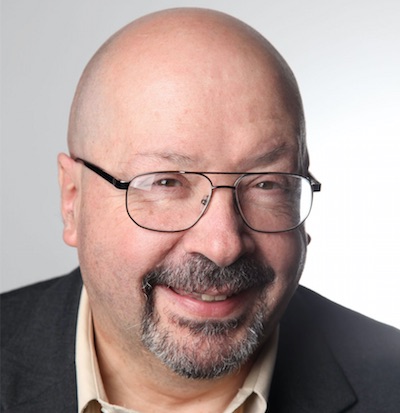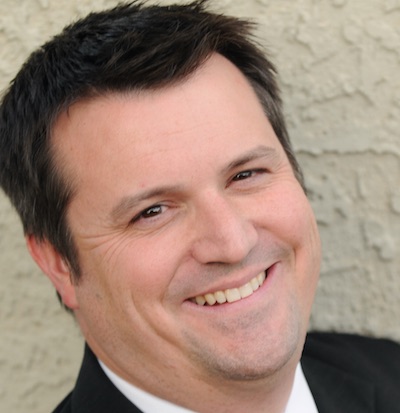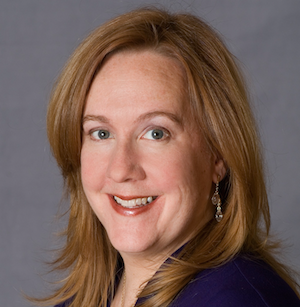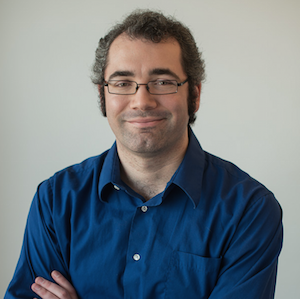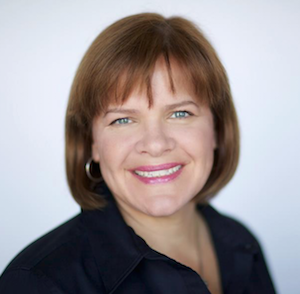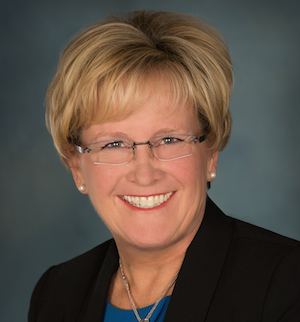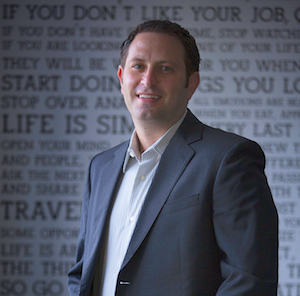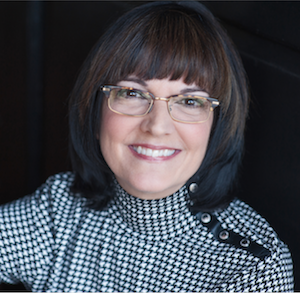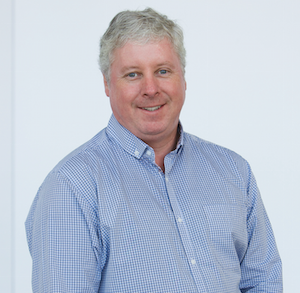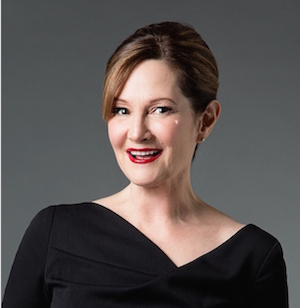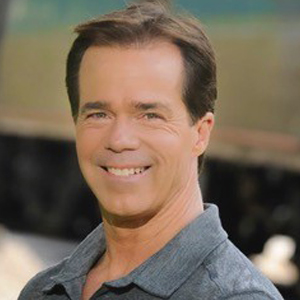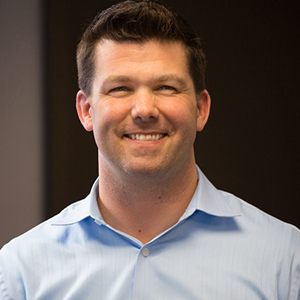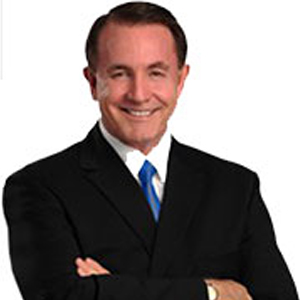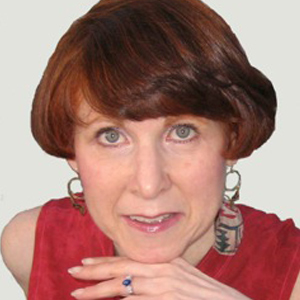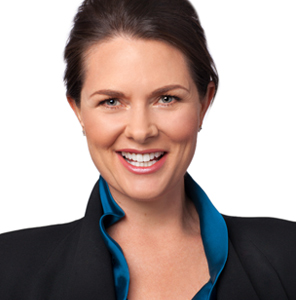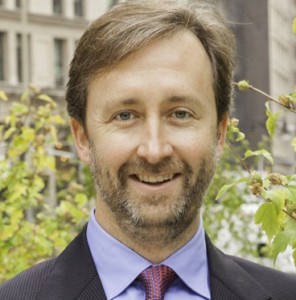From Registered Nurse To Successful Entrepreneur With Jeff Mehl

“You need to be able to once in a while stop and put your head up, and look around and see where you’re going … and I think this is where most small businesses fail, there’s no plan.”
Jeff Mehl takes us on his fascinating journey from registered nurse to two-time business owner and entrepreneur. Today, he discusses his three fundamental rules for building a successful business and how to find the best insight from the places you’d least expect.
In this episode, you’ll discover:
- His three principles of success.
- Why the craziest notions can lead to brilliant business decisions.
- How offering free services can build your business and raise your retention rates.
- Why you need a long-term plan that transcends finances and numbers.
- The value of seeking outside perspectives to identify your blind spots.
Jeff Mehl and his wife Valerie are both Registered Nurses. After working as nurses for a number of years, they decided to start their first business, which they closed in 2009 after 22 years. From that experience, Jeff learned two important principles: 1) Your business should support your lifestyle, not become a lifestyle, and 2) Be content with what you have, whether a little or a lot, because there are no guarantees in life!
In 2006, Jeff and Valerie founded Daybreak Virtual Staffing with a mission to provide clients the kind of support they lacked in their previous business. Jeff is a passionate entrepreneur and business owner. He describes his entrepreneurial journey as “a really great ride!”
Learn more about Jeff on LinkedIn and Twitter.
0Shares
How To Create A Scalable And Successful Business With Frank Bria

“Change is hard. Making the change that is necessary to scale your business is difficult. It’s not difficult in the classic sense, but it’s difficult personally. Deep down we really have to change our mindset, change our focus.”
Frank Bria is all about tipping the scales. By embracing change and creating a scalable business, Frank teaches entrepreneurs how to transform their small companies into profit powerhouses. Today he reveals the pivotal epiphany that led him to create a scalable (and successful) business that aligned with his personal priorities.
In this episode, you’ll discover:
- The four keys of scale and how to use them to grow your business.
- His “law of metamorphosis” and how changing your mindset is vital to taking major steps forward.
- Why micromanagement will prevent you from succeeding.
- How to shift a personality-based business to a scalable one.
- Why you need to fire yourself and delegate tasks.
- Why you need outside perspectives to break through barriers.
Frank Bria helps consultants and coaches turn their 6-figure practice into a 7-figure business. As author of the book Scale, Frank knows what it takes to turn a small business into a thriving enterprise. He has built and sold tech start ups and consulted for the largest international corporations in high tech, finance, and retail on 4 continents. He now takes what he used to teach to the Fortune 500 and applies it to entrepreneurs looking to scale their businesses. He is a 3-time author, speaker, strategist, and host of the podcast, The 6 to 7 Figures Show.
Learn more about Frank on frankbria.com, LinkedIn, and follow him on Twitter.
0Shares
Uniting The World Through Kindness With Orly Wahba

“You have to remind yourself that your self is great … there’s no reason why you’re not. Each person is unique and special and significant in their own way. Even though we might be one in seven billion the number that matters is that you’re one.”
Orly Wahba is changing the world one kind conversation at a time. She is an educator, activist, entrepreneur and Founder of Life Vest Inside, whose mission is to empower people with kindness and to help us recognize the exceptional potential inside all of us. Today she explains why embracing our inner resources, believing in ourselves and spreading kindness will save the world.
In this episode, you’ll discover:
- Why every project is a “work in progress” and how to push through the uncertainties.
- The significance of empowerment, kindness and believing in yourself.
- How to address fears and take the necessary (and scary) steps forward in life and in business.
- How reminding yourself why you’re doing it will lead to how you’ll do it.
- How authenticity will connect you to others.
- Why listening and receiving information is just as important as giving it.
- Why hardships will lead to revelations and strength.
- How to fight through adversity to achieve your dreams.
Orly Wahba is an educator, entrepreneur and community activist who is passionate about inspiring and motivating people to make the world a kinder place. In 2011, Orly founded Life Vest Inside, a non-profit organization with a mission to empower and unite the world with kindness. Through Life Vest Inside, Orly encourages people to embrace the incredible power of giving and recognize that in times of hardship, kindness (like a life vest) keeps the world afloat.
LVI gained international acclaim when Orly’s award-winning film Kindness Boomerang went viral, receiving over 30 million views and counting, and eventually landed her a spot to speak at TED2013 on the magic of kindness.
Orly began her career in kindness as a Middle School educator empowering children to embrace unity, build their self-value, and use their power to influence the world for good. As her kindness community grows by the thousands, more people are experiencing the addictiveness in the giving of kindness.
Learn more about Orly at Life Vest Inside, Facebook, LinkedIn, Twitter, Instagram, YouTube, the Dance For Kindness website and watch her TED Talk.
0Shares
Creating And Connecting That Killer Message With Susan Lindner

“The one underlying thread … is a killer message, and you will never connect with people on the level that you need to without a message that resonates with the audience you are trying to reach.”
Susan Lindner is the master of making incredible connections. As a former anthropologist and healthcare advocate for AIDS/HIV patients, Susan understands the significance of a powerful message and having it resonate with different audiences. Today she discusses her journey from healthcare consultant to marketing mogul and why having a fundamental understanding of your message is the key to making incredible connections with any audience.
In this episode, you’ll discover:
- Why a killer message is needed to resonate with the audience you’re trying to reach.
- How to adapt your message to different markets by understanding the core needs of your audience.
- Why it’s critical to know why you do what you do and how to use it to create your message.
- The importance of doing what feels right and why every team member must share the same company values.
- Why seeking out customers who share your values and vision is the key to easy (and successful) marketing.
- Marketing strategies that create a “shared partnership” with your customers.
Susan Lindner believes that incredible connections can change the world. As the CEO and Founder of Emerging Media, an award-winning PR · Marketing · Branding · Social Media agency, she develops breakthrough strategies that connect her clients to the right media, communities, influencers and prospects. According to her clients, Susan is relentless in pursuing the game-changing opportunities that achieve her clients’ business goals.
Prior to her 10 years in marketing, Susan worked on women’s health issues as an epidemiologist and anthropologist in HIV/AIDS at the Centers for Disease Control/NYC Department of Health, as a researcher in New York’s top hospitals and as a consultant and social development officer with international non-profits in the US and Southeast Asia.
Learn more about Susan at Emerging Media, LinkedIn, Facebook, Twitter and YouTube.
0Shares
Becoming A Better Leader With Meredith Bell

“I see people in leadership roles or in various positions that are simply not achieving what they would like to, and a lot of times it’s simply not being aware of things they could do differently to be more effective.”
Meredith Bell is an impassioned and impressive entrepreneur with a successful career spanning more than 25 years. As President and Co-Founder of Performance Support Systems, she specializes in leadership development and talent management. Today she discusses why strengthening communication, building relationships and creating a “coaching culture” will make you a remarkable leader.
In this episode, you’ll discover:
- How to develop positive, dynamic and longstanding relationships.
- Why having “shared values” will lead to long-term, productive partnerships.
- How to create a successful team that includes a dispersed workforce.
- Why performance coaching is critical in managing your team and growing your business.
- Why committing to your team’s development will make you a superior leader.
- The importance of modeling the behaviors you want to see in your team.
- Tools for developing and managing an effective workforce.
Meredith Bell has been an entrepreneur since 1982. She’s the President and co-founder of Performance Support Systems, a software company based in Virginia. Her company’s assessment and development tools are used by consultants, coaches and HR professionals around the globe to improve leadership development and talent management. The goal: help people become stronger and more effective at work and in life.
One of Meredith’s strengths is forming long-term relationships based on mutual trust and respect. She’s worked with her two business partners for 25 years and many of her company’s resellers and clients have been loyal users of their products for 20 years.
Learn more about Meredith on LinkedIn, her blog and follow her on Twitter.
0Shares
Making Connections With Michael Roderick

“Is this an opportunity? And if this is an opportunity, is saying yes to it going to lead to more opportunity or more possibility?”
Michael Roderick, CEO of Small Pond Enterprises, is all about the connections. As a former Broadway producer and current specialist in relationship design, he’s the go-to guy for advice on procuring investors, networking, and why asking (and answering) the right questions will get you through any door.
In this episode, you’ll discover:
- Successful methods for transitioning careers.
- Why connecting with people on the rise will have more benefits than connecting with those at the top.
- Why offering to give first will open doors and afford you the best opportunities.
- How doing your research and making new relationships will bring you fulfillment and profitability.
When Michael went from high school teacher to Broadway producer in under two years, and people started to ask him how he managed it. Michael began his career as a high school English teacher before producing Off Broadway and Broadway productions. This combination of experience in the arts and entrepreneurship led to Michael starting an arts incubator program so he could teach more artists about building and growing their own businesses (PLAE).
Eventually, he decided to develop a workshop on networking, which grew into a full-time consulting practice that is now Small Pond Enterprises. Michael took a short break to work as the V.P. of Operations and as a Director of Business Development for an NYC Ed. Tech. Startup. Most recently, Michael founded The Connecting Connectors Conference (ConnectorCon) and Relationship Adventure Day.
Learn more about Michael at Small Pond Enterprises, ConnectorCon, Relationship Adventure Day and you can follow him on Twitter.
0Shares
Building The Perfect Team With Shannon Waller

“The more I can facilitate how things can work better between entrepreneurs and team members, help with leadership formats and structures and conversations, that makes me really happy.”
Nobody delivers passion and energy to team growth like award winning team coach Shannon Waller, one of the earliest members of the now wildly successful Strategic Coach program. Here she discusses her winning strategies for team building, overcoming and embracing differences, and achieving goals by building and collaborating with a thriving workforce.
In this episode, you’ll discover:
- Why assumptions about your team members can be detrimental to achieving your goals.
- How understanding and appreciating each team member’s individuality will increase productivity.
- Why knowing yourself and your work patterns will help you work better with others.
- Why diversity among team members is essential for success.
- The importance of finding the right fit players for your team and knowing when it’s just not working.
- Tools to unite and inspire a decentralized workforce.
- How to overcome complacency in your business and within your team.
- The Four C System and how it will take you and your team to the next level of growth.
Shannon Waller is a passionate expert on entrepreneurial teams. With Strategic Coach® since 1991, she’s the creator of The Entrepreneurial Team® Program, a parallel program for team members of Coach clients that focuses on fostering a winning Entrepreneurial Attitude in its participants. A key decision-maker at Strategic Coach and a recognized entrepreneurial team expert, Shannon is a sought-after speaker, presenter, and coach.
She’s a Kolbe Certified* Consultant, and the 2015 recipient of the Kolbe Professional Award for individual leadership in building conative excellence. She also co-authored the bestselling book Unique Ability®: Creating The Life You Want and, most recently, wrote The Team Success Handbook, a wealth of her distilled teamwork wisdom, with 12 action- able strategies for working successfully in any entrepreneurial company.
Learn more about Shannon at The Team Success Handbook, Strategic Coach, on Linkedin, and follow her on Twitter.
0Shares
Building From Scratch With Jordan Eisenberg

“Early in my career I learned what I don’t want to do and also figured that if I was going to work this hard, I’d rather do it for myself and than for someone else. So I have a history now of building things from scratch and it’s really fun, certainly not easy, in fact it’s much harder than working for someone use, but it’s meaningful and for me it’s very fulfilling.”
Jordan Eisenberg combined his passion for “building things from scratch” with his education in mathematics and engineering to become an inventor and pioneer in the pharmaceutical industry. Today he discusses why following your passions and surrounding yourself with the right team members will lead to a successful business.
In this episode, you’ll discover:
- How his education in problem solving led him to a successful career in entrepreneurship.
- The importance of operating outside of the box.
- How his personal experience and need led him to finding (and filling) a gap in the market.
- Tips on overcoming obstacles and naysayers.
- The importance of having the right team at each stage of your business and why those teams may (and should) change with each phase.
- Tips for creating the perfect team and ideal working environment.
- The critical differences between a leader and a manager.
Jordan Eisenberg is a serial entrepreneur and the Founder/CEO of UrgentRx®. UrgentRx produces a line of fast-acting, portable OTC medications that provide right now relief for today’s busy, on-the-go consumer. The brand has been featured in The New York Times, Entrepreneur, Fortune, CNN, The Wall Street Journal, CNBC and Forbes.
Prior to founding UrgentRx, Jordan launched The Buddy Network, a consumer web and mobile app business that launched a top iPhone app. Jordan has also invented and licensed a medical device to a major manufacturer.
While working alongside entrepreneur Maurice Kanbar (founder of Skyy Vodka and holder of more than 35 patents), Jordan was instrumental in the production, launch, and strategy implementation of several consumer product businesses.
Eisenberg sits on several boards, including venture capital fund Lazarus Investment Partners, The Jake Jabs Center for Entrepreneurship at the University of Colorado Denver, as well as several startup companies.
Learn more about Jordan on LinkedIn, UrgentRx and follow him on Twitter.
0Shares
Putting Your People First With Mary Miller

“When your employees realize that the company is going to help them achieve what they want in their life, then the employees help the company achieve what they want to achieve. It’s a complete win-win scenario.”
Mary Miller transformed her “people problem” into a powerful and world-renowned management method – the Dream Manager program. Today she discusses why prioritizing your people’s ambitions is the key ingredient in building a happy and hardworking community and a thriving business.
In this episode, you’ll discover:
- The importance of quality of life (for leaders and employees).
- How to attract, acquire and retain talent differently from your competitors.
- Why you need to focus on the deeper, immediate problems in order to build a future for your business.
- How to conquer the “people problem” to achieve your business goals.
- Why the Dream Manager program works, and how it became a best selling book and resource.
- Why investing in your employees’ dreams and happiness is more important than investing in your own.
- How to consistently take on unfamiliar actions when lacking confidence.
Mary Miller is CEO of the award winning JANCOA Janitorial Services in Cincinnati, Ohio. JANCOA created The Dream Manager program, made popular by the New York Times best selling book, The Dream Manager by Matthew Kelly. The program has encouraged people around the world to achieve their dreams. Mary is known for her positive outlook and desire to help others realize their uniqueness and personal power.
In addition to running a business with over 400 full-time employees, Mary is an Associate Coach with Strategic Coach working with entrepreneurs at quarterly workshops. Two of Mary’s recent achievements include being a YWCA Career Woman of Achievement honoree in 2013 and a 2015 Enterprising Women of the Year honoree.
Learn more about Mary on LinkedIn, JANCOA and follow her on Twitter.
0Shares
Understanding Your Customer And Increasing Your Profits With Alex Harris

“The more research you do, the better you understand your customers … the more of a foundation you’re going to have going forward.”
Alex Harris (web designer, author, and ecommerce master) knows a thing or two about design that will convert traffic and increase profits. Today he teaches us the importance of diving deep into the minds of your customers, and why doing so will increase your conversion rates and boost your business.
In this episode, you’ll discover:
- Why it’s critical to design for your customer and not for yourself.
- Tips and tools for understanding the minds (and needs) of your customers.
- Solutions for solving customer problems while simultaneously increasing business growth.
- Why customer research is key.
- How to grow your audience before they become customers.
Alex Harris works with businesses to design and develop high-converting lead generation, subscription, and e-commerce stores. Since 2000, he has created over one hundred e-commerce stores. He also specializes in conversion rate optimization, and designing landing pages. While many web designers only focus on great-looking websites, Alex focuses on helping websites increase their online sales, generate more leads, and make more money.
Learn more about Alex at AlexDesigns.com and enjoy this free course Alex has to offer.
0Shares
Discovering Your Authentic Self And Using It To Communicate With Others With Lou Solomon

“When you humanize your communication you begin to resurface into your own authenticity.”
Today Lou Solomon (CEO and Founder of Interact) enlightens us on the subject of storytelling and how it’s the driving force behind discovering our authentic selves. According to Solomon, communication is king, and only with authenticity can you truly connect with others and build meaningful relationships.
In this episode, you’ll discover:
- How to recognize your authentic purpose and why it’s important.
- How to uncover your authentic story.
- The definition of the what is concept, how to use it, and how it’s vital to building relationships and effective communication.
- Why effective communication is the key in creating lasting relationships.
- Current trends in communicating with virtual employees.
- Why meeting face-to-face is the ideal way to create meaningful relationships.
- How personal storytelling will lead to your authenticity and allow you to connect with others.
- The importance of authenticity in business.
Lou Solomon is CEO and founder of Interact, a firm that helps develop individuals into strong communicators by using their own stories, experiences, and authentic style.
The firm does customized development for organizations like Wells Fargo, Duke Energy and Bank of America, in addition to offering open enrollment courses to the public.
Lou is a member of the adjunct faculty at the McColl School of Business and co-founder of the school’s annual TWIST Conference. Her latest research in collaboration with Harris Interactive sheds light on the impact of poor communication on employees.
Lou’s articles have been published by HBR.com, Entrepreneur.com, CEO.com, the American Management Association, Leadership Essentials, SUCCESS Magazine and more. In 2009 Lou released her first book, Say Something Real.
Learn more about Lou at Interact Studio, and follow her on Twitter.
0Shares
Innovating The Healthcare System With Paul Elmslie
 “We sought about to change the way patients could access and diagnosis skin cancer care in Australia.”
“We sought about to change the way patients could access and diagnosis skin cancer care in Australia.”
Paul Elmslie sought out to create low cost and quick action centers for skin cancer patients in Australia and succeeded. He discusses how his company fought through adversity to make a difference, how it positively impacted patients and the healthcare system, and how he now manages a global business.
In this episode, you’ll discover:
- Why believing in your purpose will help you innovate around established systems.
- How to overcome political barriers and obstacles.
- How to navigate through critical shift points in order to make change.
- Why education and international events are important for innovation.
- How to navigate the healthcare industry in multiple countries.
- What a culture book is and why it’s important.
- What it takes to manage a team located across numerous countries.
Paul has almost 20 years work experience with a focus on skin cancer. He was a pioneer of the original sub-specialized skin cancer business model and has established 18 clinics between 1999 and 2006 in Australia. He also owns the Redcliffe Skin Cancer Centre, a highly respected referral center and training facility in Queensland, Australia.
In 2006, Paul founded HealthCert, a global organization dedicated to changing the lives of doctors and patients in the area of skin cancer medicine. The company operates in five countries through three distinct business units: Medical and Patient Education, Skin Cancer Clinics and TeleDermatology Services. With more than 6,500 GPs trained across 15 countries, Paul has taken HealthCert to become the world’s leading provider of primary care skin cancer diagnosis, treatment and education.
More recently, Paul set up The Skin Cancer Institute, a global multidisciplinary not-for-profit focusing on research, education and a better availability and delivery of diagnosis and treatment in skin cancer medicine.
Learn more about Paul at HealthCert, on Linkedin, follow him on Twitter.
0Shares
Indispensable Intel From An Expert Entrepreneur With Luella Whalan

“You get to travel and see things and experience things that aren’t available for the everyday person.”
Having begun her entrepreneurial path at the ripe age of 23, Luella Whalan has acquired a discerning catalogue of business know-how. Today, she shares her experiences, best business practices, and expert advice, so that budding entrepreneurs can succeed in what she considers a rewarding and exciting career.
In this episode, you’ll discover:
- The opportunities exclusive to entrepreurship.
- The distinction between opportunity and freedom.
- Knowing when your employees are outgrowing your company, how to give them tools to succeed, and knowing when and how to have that conversation.
- Why the employees on the ground will provide the most insight into your business.
- Tips to develop a rapport with all members of your staff.
- The big challenges of entrepreneurship.
- The importance of social media.
- The dangers of complacency.
- How peer support is vital in growing your business.
- Pivotal resources for success.
Luella Whalan is a seasoned entrepreneur, investor, leader and strategist. As an entrepreneur she has grown and successfully exited a multi-million dollar company. She has made a number of mistakes along the way but has learned to implement and execute strong strategies designed to make sure she never repeats them.
Luella is about to open her newest venture, SpaceMax Self Storage, a new chain of self-storage facilities in Auckland, New Zealand.
Learn more about Luella at Linkedin, her blog and follow her on Twitter and Facebook.
0Shares
How To Command The Room With Ruth Sherman

“I don’t think there’s a human being walking the earth who doesn’t have something to say or a belief in something that they cannot say with a degree of passion or commitment that will engage a specific audience.”
As a former opera singer, Ruth Sherman has an unparalleled understanding of the power of voice. Now the smash author of Speakrets, she discusses her transformation from singer to renowned speech and media coach. Ruth explains how fusing your voice and expertise will command the room and take your business (and personal brand) to the next level.
In this episode, you’ll discover:
- Why public speaking is an essential marketing tool.
- Tips on how leaders can make improvements to their presentation skills.
- The importance of commanding the room and dismissing the fluff mentality.
- Why everyone has a unique charisma that can be compelling and powerful.
- Why public speaking benefits every kind of business.
- How to find your voice and enhance your presentation skills.
Ruth Sherman, M.A., is a strategic communications consultant focusing on preparing business leaders, celebrities, politicians and entrepreneurs to leverage critical public communication opportunities. This includes the development and delivery of keynote speeches, webcasts, investor presentations, road shows, awards presentations, political campaigns, media contact, and video.
Her clients hail from the A-list of international business, entertainment and fashion, including Apple, JP Morgan (NY, London, Frankfurt), Timex Group, Deloitte, Istithmar (Dubai), Universal/Focus Features, Paramount, Dualstar Entertainment Group, Versace International, Lionsgate, and many other major companies. Three of her clients have won Oscars and one the Pulitzer Prize. She is also the author of the McGraw-Hill book Get Them To See It Your Way, Right Away: How to Persuade Anyone of Anything.
Learn more about Ruth at ruthsherman.com and LinkedIn, and follow her on Twitter, Facebook and YouTube.
0Shares
Why Finding Focus Is The Key To Success With Scott Smith

“Life is going to happen. Obstacles must be jumped over to get where you want to go.”
The Daily Boost’s Scott Smith unveils how overcoming life’s obstacles led to his profound journey from radio “shock jock” to motivational master. Smith affirms that mindset is everything, and that only with razor sharp focus will you succeed in business, entrepreneurship, and life in general.
In today’s episode, you’ll discover:
- The difference between obstacles and constraints, and how to deal with them.
- Knowing how your message will keep you (and your market) happy.
- Your personal why and how understanding it will lead you to success and the ability to overcome obstacles.
- How to take life’s challenges and energizing them.
- Common business roadblocks.
- How sharing your story can better yourself, your business, and those around you.
- How perception changes with age.
- The importance of focus, and how it can boost your business and better your life.
As one of the first to enter the world of podcasting in 2006, Scott Smith is now a podcast legend, having created The Daily Boost – the most downloaded self-help podcast in the history of iTunes. Scott has produced more than 8,000 podcast episodes, and accumulated more than 14 million total downloads.
Scott started professional life as a successful radio personality and spent a lifetime as a radio, television, and voiceover talent. He’s been heard in every major market, all broadcast networks, and 10,000 commercials, including Universal Studios Florida, Disney Cruise Lines, House of Blues, Hard Rock Cafe’, Red Lobster, Chrysler, Motorola, Olive Garden, Time Life Books and more.
Moving into the world of Personal Development in 2006 with The Daily Boost, Scott was one of the first people to monetize a podcast utilizing a unique creation and production model that embraced storytelling and timeless marketing technique. The result is a thriving coaching, consulting and speaking business. After 14 millions downloads, Scott has become a go-to expert for daily Personal Development, and his expertise in creating a successful podcast.
Learn more about Scott at Motivation To Move, Linkedin and follow him on Facebook.
0Shares
STP105: Thinking About Yourself Differently as You Grow as a Business Leader with Ryan Neal
 On the latest episode of Smashing the Plateau, Ryan Neal talks about being an attorney with a strong background in entrepreneurship. He puts a large emphasis on building entrepreneurs and leaders within his businesses. He has learned that his team members tend to stick around a lot longer as a result.
On the latest episode of Smashing the Plateau, Ryan Neal talks about being an attorney with a strong background in entrepreneurship. He puts a large emphasis on building entrepreneurs and leaders within his businesses. He has learned that his team members tend to stick around a lot longer as a result.
Ryan says you have to view yourself differently as you grow as a business leader. You also have to “operationalize” your processes so you don’t become stunted by your own products. Ryan knows it takes a lot of hard work to become a successful entrepreneur and leader, which is why he says entrepreneurs don’t look for the job with the lowest stress level or the job that will let us clock out early and watch TV.
Ryan also discusses:
- How he started with a music background
- The difference between an employee mindset and an entrepreneur mindset
- Owning a business that focuses on building entrepreneurs
- Whether you can be an entrepreneur and work a 40 hour work week?
- Hitting multiple levels of plateaus as a growing company
- Thinking about yourself differently as you grow as a business leader
Ryan Neal is a seasoned investor, director, and adviser with over ten years of experience collaborating with the owners and managers of private companies to increase their value. With a focus and specialty in high-tech and custom manufacturing environments, Ryan brings a diverse skill set and the passion to affect long lasting strategic partnerships with companies and individuals. Ryan is an attorney with a strong background in entrepreneurship. His legal and business experience is focused on private equity transactions, mergers and acquisitions, and business and real estate law. Prior to founding Pendulum Investments, Ryan served as managing partner at Wilson & Neal, PLLC, a boutique law firm focusing on business law and real estate. He received his Juris Doctorate (cum laude) and Masters in Business Administration from Seattle University. He lives in Seattle, Washington with his wife and their child.
Learn more about Ryan at penduluminv.com, LinkedIn, or Twitter.
0Shares
STP104: How Having a Conscious Business is the Future of Capitalism with JV Crum
 On today’s episode of Smashing the Plateau, JV Crum talks about building a business that makes a difference in the world. During the “first stage” of capitalism, he says we measured success by the amount of money we made. Now, we’re in the “second stage” of capitalism, which means we focus on making a difference in the world, feeling fulfilled in our careers, and providing value for everyone involved. Ultimately, this can make a business much more successful.
On today’s episode of Smashing the Plateau, JV Crum talks about building a business that makes a difference in the world. During the “first stage” of capitalism, he says we measured success by the amount of money we made. Now, we’re in the “second stage” of capitalism, which means we focus on making a difference in the world, feeling fulfilled in our careers, and providing value for everyone involved. Ultimately, this can make a business much more successful.
In the 21st century, money isn’t the only aspect of our career we value. We look for meaning and we want to make the world a better place. JV argues the Recession was a wake up call for a lot of people—they realized they weren’t fulfilled or happy.
JV Crum also discusses:
- Having a “conscious business” as the future of capitalism.
- “Conscious entrepreneurship” and “second stage capitalism.”
- Providing value for everyone involved with your business.
- How the Recession made a lot of people aware of their unhappiness. We realized we want something more.
- How our greatest fulfillment doesn’t come from something we get for ourselves. It comes from contributing and collaborating with other people.
- Building a business that makes a difference in the world.
JV Crum III is a business coach who helps entrepreneurs grow six and seven figure conscious businesses. He is a speaker, marketing expert, Huffington Post columnist, best-selling author of Conscious Millionaire: Grow Your Business by Making a Difference. He also hosts the top-ranking Conscious Millionaire family of podcasts. JV is the Founder of ConsciousMillionaire.com, a global coaching and wealth product business. He holds an MBA, JD, Masters in Psychology, and has built and sold multiple successful companies. He is also the Founder/Director of the non-profit Conscious World Foundation, which trains young people between the ages of 18-25 to become the next generation of conscious leaders worldwide.
Learn more about JV Crum at consciousmillionairepodcast.com, consciousmillionaire.com, consciousworld.org, LinkedIn, Facebook, or Twitter.
You can also find him at NPR, Entrepreneur on Fire, The Huffington Post, Eventual Millionaire, and Mixergy.
0Shares
STP103: Improving Relations Among the Generations in the Workplace with Phyllis Haserot
 Phyllis Weiss Haserot is a passionate champion of improving relations among the generations in the workplace to help organizations solve sensitive intergenerational challenges that can hinder productivity, client relationships, knowledge transfer, succession planning, and business development results. She is President of Practice Development Counsel, a business development and organizational effectiveness consulting and coaching firm she founded over 25 years ago and founder of Cross-Generational Conversation Day.
Phyllis Weiss Haserot is a passionate champion of improving relations among the generations in the workplace to help organizations solve sensitive intergenerational challenges that can hinder productivity, client relationships, knowledge transfer, succession planning, and business development results. She is President of Practice Development Counsel, a business development and organizational effectiveness consulting and coaching firm she founded over 25 years ago and founder of Cross-Generational Conversation Day.
Phyllis also discusses:
- Improving relationships among different generations in the workplace
- How people impact one another because of different worldviews
- Why internal relationships can cause successful companies to hit plateaus
- How differences among generations can impact a company’s growth
- Some of the hardest tasks we have to accomplish in business today
Our latest guest Phyllis Haserot is the author of two books on marketing for law firms – The Rainmaking Machine (2014) and The Marketer’s Handbook Of Tips & Checklists (both Thomson Reuters). She has a book in progress entitled You Can’t Google it!: The Compelling Case for Cross-Generational Conversation at Work.Learn more about Phyllis at pdcounsel.com, nextgeneration-nextdestination.com, LinkedIn, or Twitter.
Learn more about Phyllis at pdcounsel.com, nextgeneration-nextdestination.com, LinkedIn, or Twitter.
0Shares
STP102: Growing a Business isn’t Just About Making Good Money with Nina Kaufman
 On today’s episode of Smashing the Plateau, Nina Kaufman shares her expertise, not just as an ordinary business attorney, but as a small business champion. Yes, business owners want to make more money. But Nina explains there is more to the equation when scaling your business.
On today’s episode of Smashing the Plateau, Nina Kaufman shares her expertise, not just as an ordinary business attorney, but as a small business champion. Yes, business owners want to make more money. But Nina explains there is more to the equation when scaling your business.
Nina also discusses:
- Why growing a business isn’t just about making money
- The most important elements in getting a business to scale
- How business has changed for the new generation
- Important thought leaders to follow
- What to do when the people who are close to you become naysayers
- How to know when to delegate, especially when you don’t have a lot of capital
Because growing a business isn’t just about making good money. That’s a lesson that small business champion and Entrepreneur.com legal expert Nina Kaufman learned the hard way. She’s no ordinary business attorney. Forbes Magazine calls her “One of the 25 Most Influential Women Tweeting about Entrepreneurship.” The U.S. Small Business Administration named her their regional Women in Business Champion of the Year. As a trusted thought leader, she reaches over 2 million readers each month on Entrepreneur.com. She’s also a Mets fan by marriage and former stand-up comic.
To her dismay, Nina found out that the business she’d spent over 10 years pouring her heart, soul, and savings into wasn’t worth a dime when she was ready to move on. The moral of the story? It’s really all about creating freedom. Having options. Building a life.
She has a particular passion for showing owners of service businesses how to stop feeling stuck in their business and wean it off of needing you all the time. You can get a free copy of her special report on “10 Steps to a Million Dollar Business” at BusinessExponential.com/podreport.
Learn more about Nina at askthebusinesslawyer.com, businessexponential.com, LinkedIn, or Twitter.
0Shares
STP101: Shaking the Fear of Reaching out to Successful People with Nik Parks
 On today’s episode of Smashing the Plateau, Nik Parks, MicroFame Media Evangelist, talks about the fear that is associated with reaching out to people who are further along in their career. Time and time again, Nik has been pleasantly surprised by the generosity of people. He also talks about being ahead of your time as a business leader but not “too ahead of your time”.
On today’s episode of Smashing the Plateau, Nik Parks, MicroFame Media Evangelist, talks about the fear that is associated with reaching out to people who are further along in their career. Time and time again, Nik has been pleasantly surprised by the generosity of people. He also talks about being ahead of your time as a business leader but not “too ahead of your time”.
Nik also discusses:
- What it means to be a brand evangelist
- What it means to be a “creative thinker”
- Do financial incentives work?
- There’s fear associated with reaching out to people who are further along in their career. Why?
- Being ahead of your time but not “too ahead of your time”
- The connection between comedy and entrepreneurship
Nik Parks is the MicroFame Media Evangelist, writer, content marketer, and was the co-founder of Launching Creative. His writing has appeared in Forbes, The Muse, Chelsea Krost, and he has made an appearance on The #AskGaryVee Show.
Learn more about Nik at microfamemedia.com, Twitter, or LinkedIn.
0Shares
STP100: What if You Don’t Know You’re Burned Out with Katherine Hosie
 On today’s episode of Smashing the Plateau, Katherine Hosie shares her story of becoming a coach for men who are suffering from a midlife crisis. She explains that we often don’t even realize when we’re burned out, and a midlife crisis can last much longer than a couple of years if it isn’t addressed. We can attain a lot of success, according to Katherine, by following the rules and behaving within certain roles for the first half of our career. However, we eventually reach a point where that doesn’t work anymore.
On today’s episode of Smashing the Plateau, Katherine Hosie shares her story of becoming a coach for men who are suffering from a midlife crisis. She explains that we often don’t even realize when we’re burned out, and a midlife crisis can last much longer than a couple of years if it isn’t addressed. We can attain a lot of success, according to Katherine, by following the rules and behaving within certain roles for the first half of our career. However, we eventually reach a point where that doesn’t work anymore.
Katherine also discusses:
- How personal and business roles are often intertwined
- When Katherine woke up at age 38 and said, “What happened? How did I get stuck in this routine?”
- Most people don’t realize when they’re burned out
- A midlife crisis can last for years and years
- Round 2 is often better than round 1
Katherine Hosie has been coaching full-time for over 12 years. She works primarily with professional men that are bored, frustrated, and feeling ‘stuck’ in their roles, supporting them in finding a new and exciting direction to which they can devote the second half of their lives.
She has a Master of Science degree in Coaching Psychology from the University of Sydney and was formerly President, International Coach Federation, Australasia, leading over 1,300 coaches across two countries.
Katherine is Australian, based in the San Francisco Bay Area, and works virtually with clients around the world.
Learn more about Katherine at powerhouse-coaching.com, LinkedIn, or Twitter.
0Shares
STP099: How to find your story and share it with the world with Jen Begeal
 Today’s guest, Jen Begeal, shares some fascinating insight from her experience with both tech startups and the entertainment industry including Current TV, Umami TV, Verizon Fios, Toyota, A&E, Universal Studios and Lionsgate. Jen says people have to know your business’s story. If they don’t know who you are and what you do, you won’t get the client, you won’t get the funding your business needs, or you won’t have enough sales.
Today’s guest, Jen Begeal, shares some fascinating insight from her experience with both tech startups and the entertainment industry including Current TV, Umami TV, Verizon Fios, Toyota, A&E, Universal Studios and Lionsgate. Jen says people have to know your business’s story. If they don’t know who you are and what you do, you won’t get the client, you won’t get the funding your business needs, or you won’t have enough sales.
Jen also discusses:
- Entrepreneurs always have ideas so it’s common to have a lot of side businesses
- Why businesses need storytelling in order to be successful
- The difficulty of finding the story of your business (who are you and what do you do?)
- How to realize when your demographic changes
- When a client offers you a full time position
Jen is a digital marketing director with a history of developing robust marketing solutions for blue chip brands, entertainment properties and technology start-ups. Previous clients include Current TV, Umami TV, Verizon Fios, Toyota, A&E, Universal Studios and Lionsgate. In 2010 Jen co-founded the New York chapter of StoryCode, a not-for-profit cross-platform incubator. Recently she partnered with StoryForward, an LA based organization dedicated to exploring the future of storytelling and entertainment. Jen is also an adjunct professor in the New Media department at Concordia College in Bronxville, New York where she teaches digital marketing.
Learn more about Jen at jlbhartmedia.com, her blog, Facebook, Twitter, or LinkedIn.
0Shares
STP098: Learning how to listen as a leader with Ruth Messinger
 In today’s episode of Smashing the Plateau, I have the honor of interviewing Ruth Messinger, President of the American Jewish World Service. The American Jewish World Service is the leading Jewish organization working to promote human rights and end poverty in the developing world. AJWS advances the health and rights of women, girls and LGBT people; promotes civil and political rights; defends access to food, land and livelihoods; and aids communities in the aftermath of disasters. AJWS pursues lasting change by supporting grassroots and global human rights organizations in Africa, Asia, Latin America and the Caribbean and by mobilizing supporters in the U.S. to advocate for global justice. Working together, the AJWS community strives to build a more just and equitable world.
In today’s episode of Smashing the Plateau, I have the honor of interviewing Ruth Messinger, President of the American Jewish World Service. The American Jewish World Service is the leading Jewish organization working to promote human rights and end poverty in the developing world. AJWS advances the health and rights of women, girls and LGBT people; promotes civil and political rights; defends access to food, land and livelihoods; and aids communities in the aftermath of disasters. AJWS pursues lasting change by supporting grassroots and global human rights organizations in Africa, Asia, Latin America and the Caribbean and by mobilizing supporters in the U.S. to advocate for global justice. Working together, the AJWS community strives to build a more just and equitable world.
Ruth also discusses:
- Social justice work/giving back
- How AJWS was virtually invisible when Ruth was brought on board
- The challenges of scaling an organization
- Becoming more clear about what you are as an organization in order to maintain and expand
- Learning how to listen as a leader
- What it means to be a leader in 2015
Ruth W. Messinger is president of American Jewish World Service (AJWS), the world’s leading Jewish organization working to end poverty and realize human rights in the developing world. Ruth came to AJWS in 1998, after a 20-year career in public service in New York City. As a leading activist for human rights around the globe, Ruth lectures widely and holds leadership roles in the faith-based advocacy arena. She currently sits on the State Department’s Religion and Foreign Policy Working Group and co-chairs the Sub-Working Group on Social Justice. Ruth has been honored by many national Jewish organizations and has been named on lists of the world’s most influential Jews and religious leaders by The Jewish Daily Forward, The Jerusalem Post and The Huffington Post.
Learn more about Ruth at ajws.org, or follow her on Linkedin and Twitter.
0Shares
STP097: The Stress of Being in Charge of a Business with Rick Duris
 Today’s episode of Smashing the Plateau features a special interview with Rick Duris. Though he normally likes to help people from behind the scenes, Rick agreed to come on the show to share his story of building a successful software development company, experiencing the stress of owning a software development company during Y2K, and his consequent nervous breakdown. He also shares how he “got his entrepreneurial spirit back” after a two year break.
Today’s episode of Smashing the Plateau features a special interview with Rick Duris. Though he normally likes to help people from behind the scenes, Rick agreed to come on the show to share his story of building a successful software development company, experiencing the stress of owning a software development company during Y2K, and his consequent nervous breakdown. He also shares how he “got his entrepreneurial spirit back” after a two year break.
Rick also discusses:
- Positioning yourself as an expert
- The stress of being in charge of a business
- How he got sued after Y2K
- Embracing what’s happening rather than avoiding pain and stress—this will lead to a breakthrough
- Working in a competitive market
Rick Duris is the founder of copyranger.com. He is publicly one of the top “pay-for-performance” copywriters in the country. Behind the scenes, he’s responsible for some of the biggest Internet marketing campaigns and celebrities.
Learn more about Rick’s business at copyranger.com or you can email him at rick92651@gmail.com.
0Shares
STP095: Seeking Change and Finding Clarity with Alexander Hamilton Dunlop
 Professional life coach Alexander Hamilton Dunlop joins Smashing the Plateau this week to discuss the nexus of personal growth and business success. Drawing from his own experiences, from Wall Street consultant to shaman’s apprentice, Alexander covers a wide range of topics from emotional intelligence to improving health and well-being, all geared towards helping people find clarity and achieve personal and entrepreneurial growth. In his own business, he employs a deck of cards and a bit of math to help clients better understand themselves and ultimately find direction by acknowledging weakness and leveraging strengths. Unconventional though that may be, he describes how no matter where you find clarity, it is a vital step to smashing business’s (and life’s) plateaus.
Professional life coach Alexander Hamilton Dunlop joins Smashing the Plateau this week to discuss the nexus of personal growth and business success. Drawing from his own experiences, from Wall Street consultant to shaman’s apprentice, Alexander covers a wide range of topics from emotional intelligence to improving health and well-being, all geared towards helping people find clarity and achieve personal and entrepreneurial growth. In his own business, he employs a deck of cards and a bit of math to help clients better understand themselves and ultimately find direction by acknowledging weakness and leveraging strengths. Unconventional though that may be, he describes how no matter where you find clarity, it is a vital step to smashing business’s (and life’s) plateaus.
Alexander also discusses:
- Finding meaning in the work you do – or finding meaningful work
- Identifying patterns to help reduce wasted energy and stress
- Establishing diet and lifestyle as a basis for peak performance
- Developing power, inner drive, and authority to advance to higher tiers
Alexander is a professional life coach. He is also a successful entrepreneur, having launched a holistic health center in Manhattan. He has worked as a minister and been trained as a Roman Catholic priest; he was also initiated as a Swami while living in India and has apprenticed in the Shamanic traditions. He is a Harvard graduate and former Wall Street Consultant.
Learn more about Alexander’s business at www.alexanderhamiltondunlop.com, or visit his non-profit foundation, Spiritual Nutrition, at spiritualnutrition.org, for free gifts and numerology reports.
0Shares

